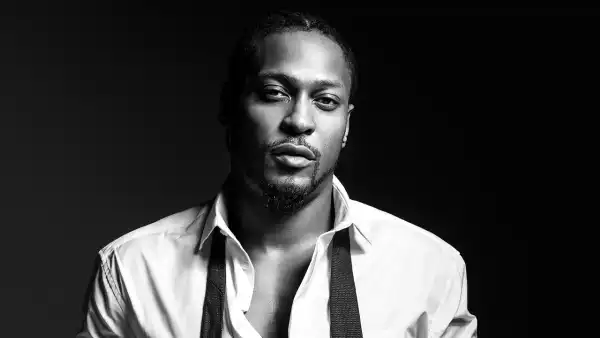
Save this storySave this storySave this storySave this story
According to Hegel, the slow march of human civilization was intermittently disrupted and shifted by “Heroes,” singular figures “whose vocation it was to be the agents of the World-Spirit,” as he wrote. Such heroes interfere in and remake the world; their deeds produce “a complex of historical relations which appear to be only their interest, and their work.” All the realities of an era seem to trace back to these individuals. Hegel had Caesar in mind as well as Napoleon, his own contemporary; all of the heroes he identified were men. Today, though, Hegel might be forced to loosen his paradigm and assign the role of World-Spirit agent to Taylor Swift.
Swift was already impossible to escape at the height of the Eras Tour, her globe-spanning musical retrospective that launched in March of 2023 and has grossed more than a billion dollars in ticket sales. When the Eras Tour film appeared in October, the pop star got another boost: you could spend almost three hours basking in her sparkly aura in movie theatres across the country. Then news of Swift’s romance with Travis Kelce, the bearded, brawny Kansas City Chiefs football player, gave her a major crossover moment with the only group larger and more devoted than her own audience: sports fanatics. Blurry photos of Swift at games and clips of her with Kelce’s family were passed around like evidence of Bigfoot. It seemed unthinkable that the Swift hysteria could crescendo any further—until this past Sunday, when Kelce’s Chiefs won the A.F.C. championship game, sending the team to the Super Bowl, where they will play the San Francisco 49ers. The narrative, admittedly, was almost too neat: America’s sweetheart dating the national equivalent of a homecoming king, who was so inspired—by love, presumably—that his team made it to the championship.
Call it the Swiftularity: it’s not that Swift is all we talk about; it’s that anything we talk about bends back toward her, stretching the boundaries of logic. The collision of such gargantuan cultural forces has occasioned conspiracy theories that the N.F.L. is fixing the Super Bowl so that Swift will appear at the event, as she has at many of Kelce’s games, and boost ratings into the stratosphere, reviving American interest in the sport. The MAGA camp went into speculative overdrive. A chyron on the conservative One America News Network deemed it a “MASSIVE SUPERBOWL PSY-OP.” The game would be little more than Democratic propaganda, showcasing what Vivek Ramaswamy, the Republican Presidential candidate turned Trump booster, called an “artificially culturally propped-up couple.” (On X, the Times columnist Ross Douthat proposed that the couple should act as a “screening question,” like a Rorschach blot, for a future G.O.P. Administration: Are they “the last best hope for America” or a ploy to make N.F.L. fans “get booster shots and vote for Democrats”?) Others hypothesized that Kelce might use the occasion of a Super Bowl victory to propose, leading to a wedding even more hyped than that of Prince Harry and Meghan Markle. Anxiety erupted over the possibility that Swift might not make it back from a concert date in Japan on time to attend the game. Fevered time-zone calculations ensued.
President Biden’s campaign is dreaming of a Swift endorsement. One suggestion, according to the Times, is to have the President attend an Eras Tour concert to solicit the loyalty of her fans. Could a shot of Biden wearing a friendship bracelet swing the election? Perhaps so: according to a poll conducted for Newsweek, eighteen per cent of voters would be more likely to vote for whichever candidate Swift endorsed, a fact that might bode poorly for the state of the American electorate if it weren’t already so grim. Even Donald Trump seems to be triggered by Swift’s ubiquity, claiming in private, according to Rolling Stone, that he is “more popular.”
The inescapability of Swift—the sense that everything from the fate of the N.F.L. to the fate of American democracy somehow hinges on Taylor and Travis, a.k.a. TNT—may have something to do with the structure of social media at the moment. Algorithmic feeds act like enormous funnels, siphoning users toward an increasingly narrow set of subjects. The combination of Taylor Swift plus Travis Kelce, feminine pop music plus male athletic contests, creates an all-consuming content vortex, a four-quadrant supernova of fame. The only way for normal folks to get attention from the recommendation algorithm is to succumb to its gravity. Swift content had already taken over X in recent days with a flood of explicit A.I.-generated deepfake images, forcing the platform to temporarily prevent any user from searching the keywords “Taylor Swift.” Content moderation, or lack thereof: another issue sucked up in the Swiftularity. (Yet another: global warming, which, as others have pointed out, Fox News seemed suddenly concerned about when it complained that Swift’s private jet had “belched” CO2 en route to the A.F.C. championship game.)
This all might be “by design,” as Swift’s lyrics put it; even if she’s not a Pentagon asset, she is a self-proclaimed “mastermind.” Hegel, however, might argue that it is not the promise of personal gain that is motivating Swift’s activities but “an unconscious impulse” to accomplish “that for which the time was ripe.” Put another way, perhaps Swift is simply an unwitting emissary of our society’s subterranean urges. Are Democrats, however supposedly hellbent on dismantling gender roles and destroying the nuclear family, still longing for the heterosexual American archetype? Is the entire country suffering from a Freudian desire to relive the consummation of high-school prom? Or perhaps, in the absence of enthusiasm for the two unpopular candidates racing toward the Presidential election—who are set to become the oldest pair of nominees in history—young Americans are simply yearning for the kind of charismatic royalty that they can purely worship. If we can’t have a President we like, at least we can have a princess and her prince. Here comes the last great American dynasty. ♦
Sourse: newyorker.com







